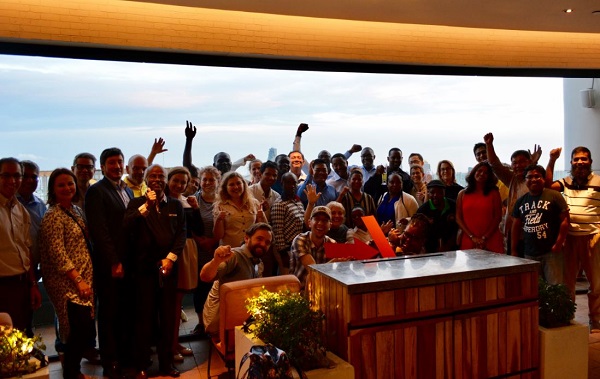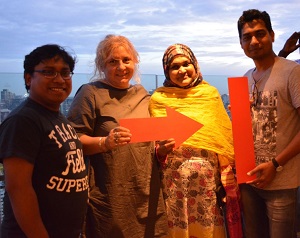28 July 2017, Bangkok, Thailand - The Stop TB Partnership facilitated a workshop on human rights, key populations and gender tools from 24-27 July 2017 in Bangkok, Thailand. The aim of the workshop was to present, discuss and plan with country teams from Bangladesh, Cambodia, India, Kenya, Nigeria, Tanzania, and Ukraine, the TB/HIV Gender Assessment Tool, Legal Environment Assessment Tool, and Data for Action Framework on Key, Vulnerable and Underserved Populations.
Tuberculosis (TB) thrives in conditions of structural inequity, where the complexities of poverty, social inequity, disempowerment, rights violations, conflict and patriarchy render communities susceptible to TB and marginalize access to diagnosis, treatment and care. Moreover, as Anupama Srinivasan, a workshop participant from REACH India remarked, "Studies disproportionally focus on HIV than TB, and as a result, we don’t have substantial data for TB."
The Stop TB Partnership in collaboration with partners is pioneering the way forward, in the creation of the three tools which aim to bridge the data gap and ensure that implementers properly address human rights, gender and vulnerable populations, so that the End TB goals are achieved.
Designed for implementers, national programs and civil society, the three tools mentioned above provide a current and improved perspective to support reviewing national policies and practices, focusing on human rights and gender-based approaches to TB and HIV.

The TB/HIV Gender Assessment Tool was developed by Stop TB and partners in partnership with UNAIDS to assist countries to assess their HIV and TB epidemic context and response from a gender perspective, helping them to make their responses gender sensitive and reduce the dual burden of HIV and TB infection. The tool builds on the UNAIDS HIV Gender Assessment Tool and is intended to work in areas to maximize gender-transformative responses, which is crucial to understand key and vulnerable populations by HIV and TB.
The Legal Environment Assessment Tool, developed by Stop TB and partners in cooperation with UNDP, identifies the laws, policies and practices that pose barriers to accessing health services and informs planning of practical programmes that address those barriers. The tool aims to build national capacity for facilitating an inclusive and participatory process through which to develop a human rights framework for TB and to bring national laws and policies in line with this framework.
The Data for Action Framework on Key, Vulnerable and Underserved Populations, created in collaboration with the Global Fund, ensures that country programmes will consider interventions and access for everyone, including populations that are more vulnerable, and have increased barriers to access services. The framework offers ways to fills gaps in programme data in order to design appropriate services with and for vulnerable populations.
The workshop served as a platform for the seven teams to develop country specific action plans for tool implementation this year.





